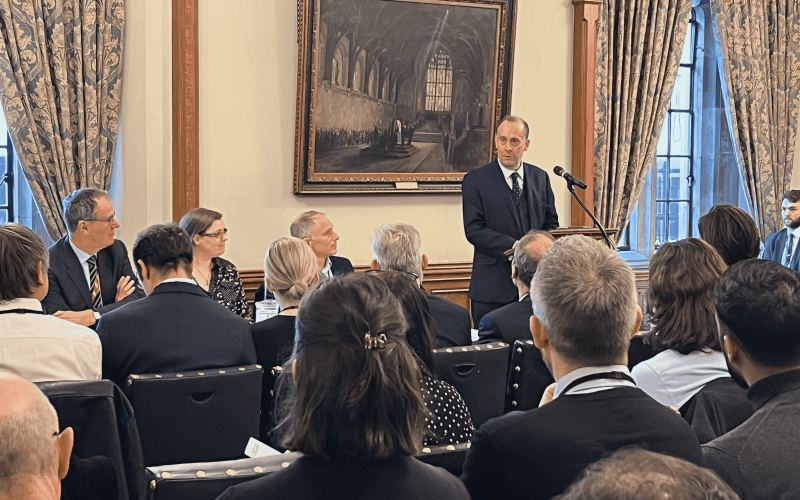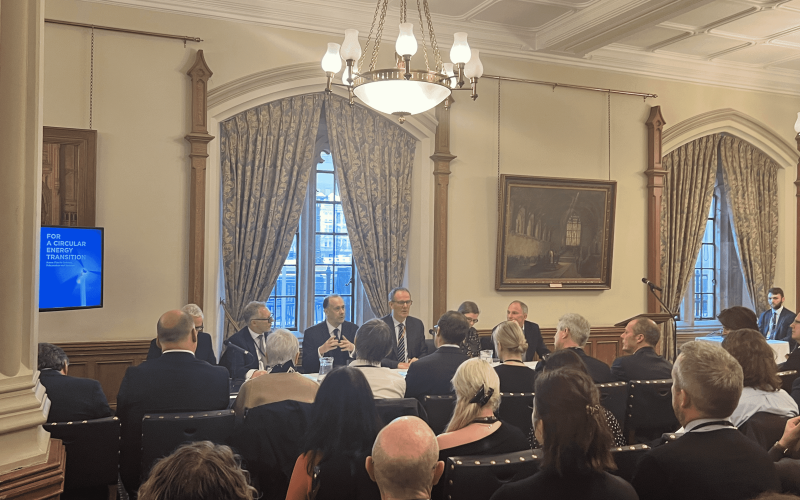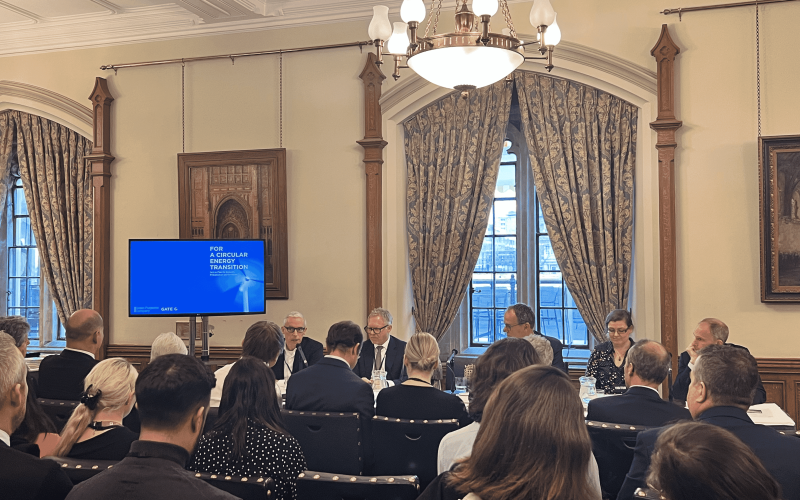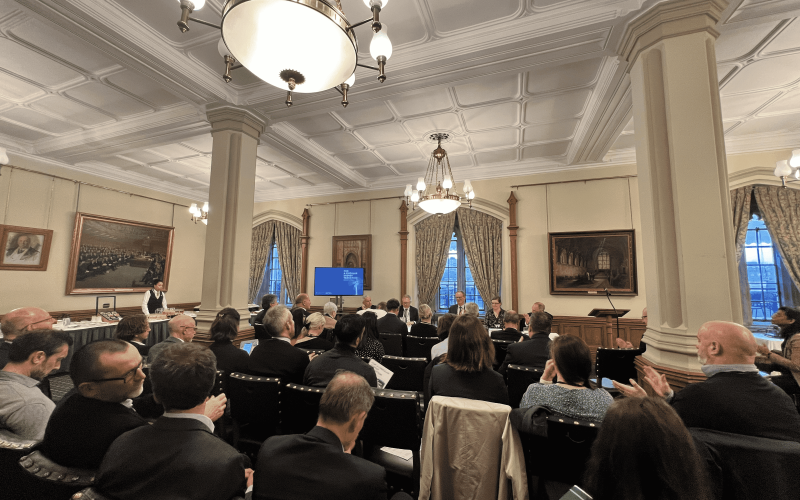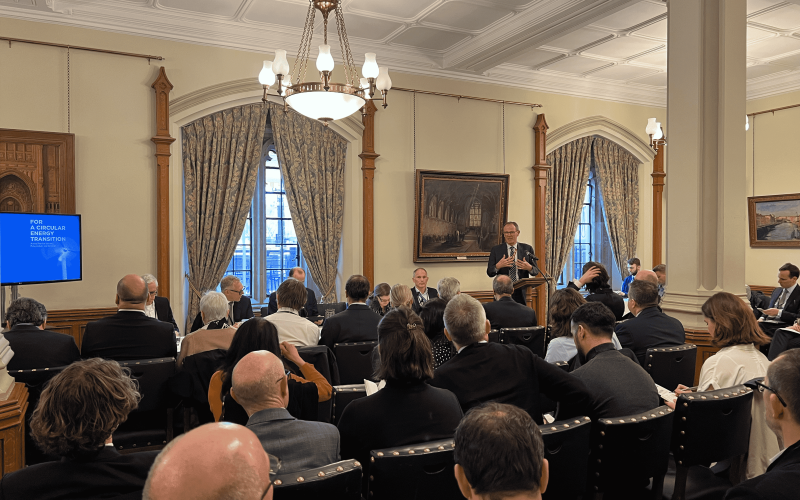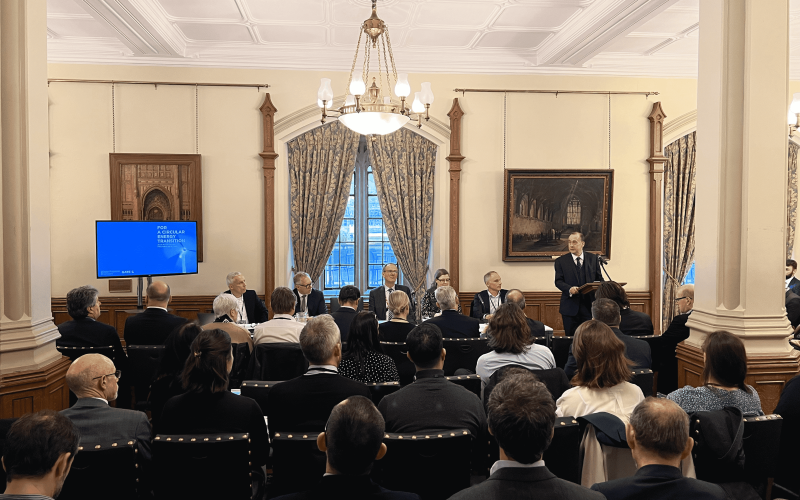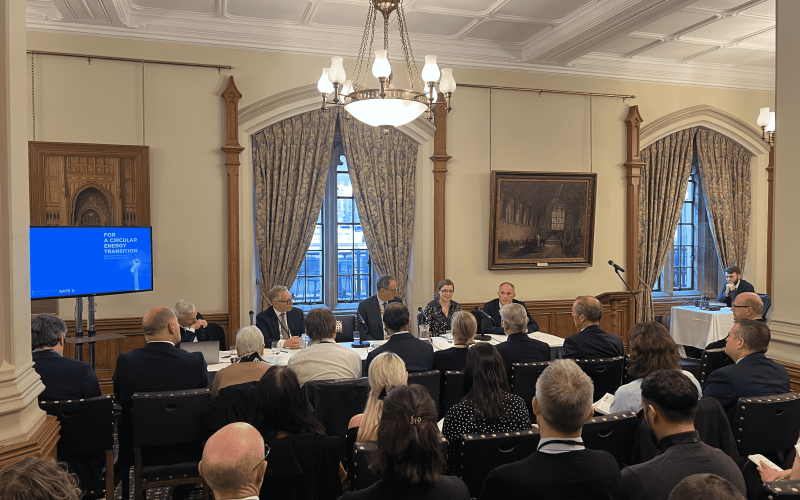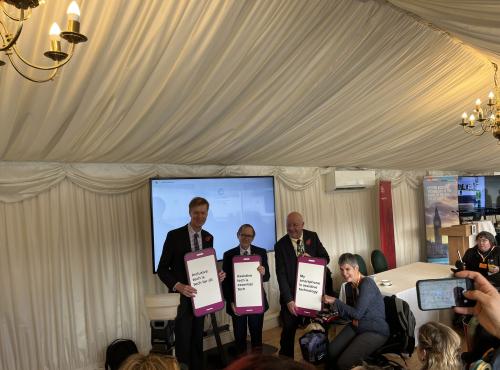Parliamentary Launch Event: For a Circular Energy Transition
On Tuesday 21 February, Policy Connect partnered with the Green Purposes Company (GPC) to launch their new report, ‘For a Circular Energy Transition: Action Plan for Industry, Policymakers and Investors’ at an event in Parliament. The report advocates the urgent need for the renewable energy sector to transition to a circular economy model. This is to address the growing environmental impacts and supply chain constraints from the proliferation of renewable technologies.
The event was chaired by Lord Teverson, a Trustee of the GPC, and featured a keynote speech from Lord Callanan, the newly appointed Parliamentary Under Secretary of State in the Department for Energy Security and Net Zero. This was followed by an expert panel discussion consisting of Rémy La Moigne (report author and Managing Director of Gate C), Mark Dooley (Global Head, Green Investment Group), Dr Anne Velenturf, (Senior Research Fellow in Circular Economy at University of Leeds) and Duncan Clark (Head of Ørsted UK & Ireland).
Lord Callanan gave an overview of the new department’s high-level aims, particularly around energy security and the need to onshore much of the UK’s energy supply, of which renewables will play a large part.
Rémy La Moigne highlighted key themes of the report. The transition to renewable energy is a major shift from a fuel-intensive to a material intensive energy system and is coupled with an absence of planning and design for end-of-life. From 2030 onwards, the renewable energy sector will face a “tsunami of waste” and potential supply chain problems if no action is taken. The report proposes an action plan based on three main levers:
- Design assets for a circular economy
- Build circular value chains
- Create the right economic and policy conditions
Aimed at policymakers, investors, and industry, it highlights the need for them to step up and bring about the changes required, taking encouragement from a growing number of examples of circular business models in this and adjacent sectors.
The panel engaged in a robust discussion and Q&A, welcoming the report findings, while also highlighting the various challenges and barriers standing in the way of developing a circular economy model. In particular, the need for regulation and the revision of existing policies to incentivise the transition of the renewable sector to a circular economy was highlighted.
To read the full report click here.
